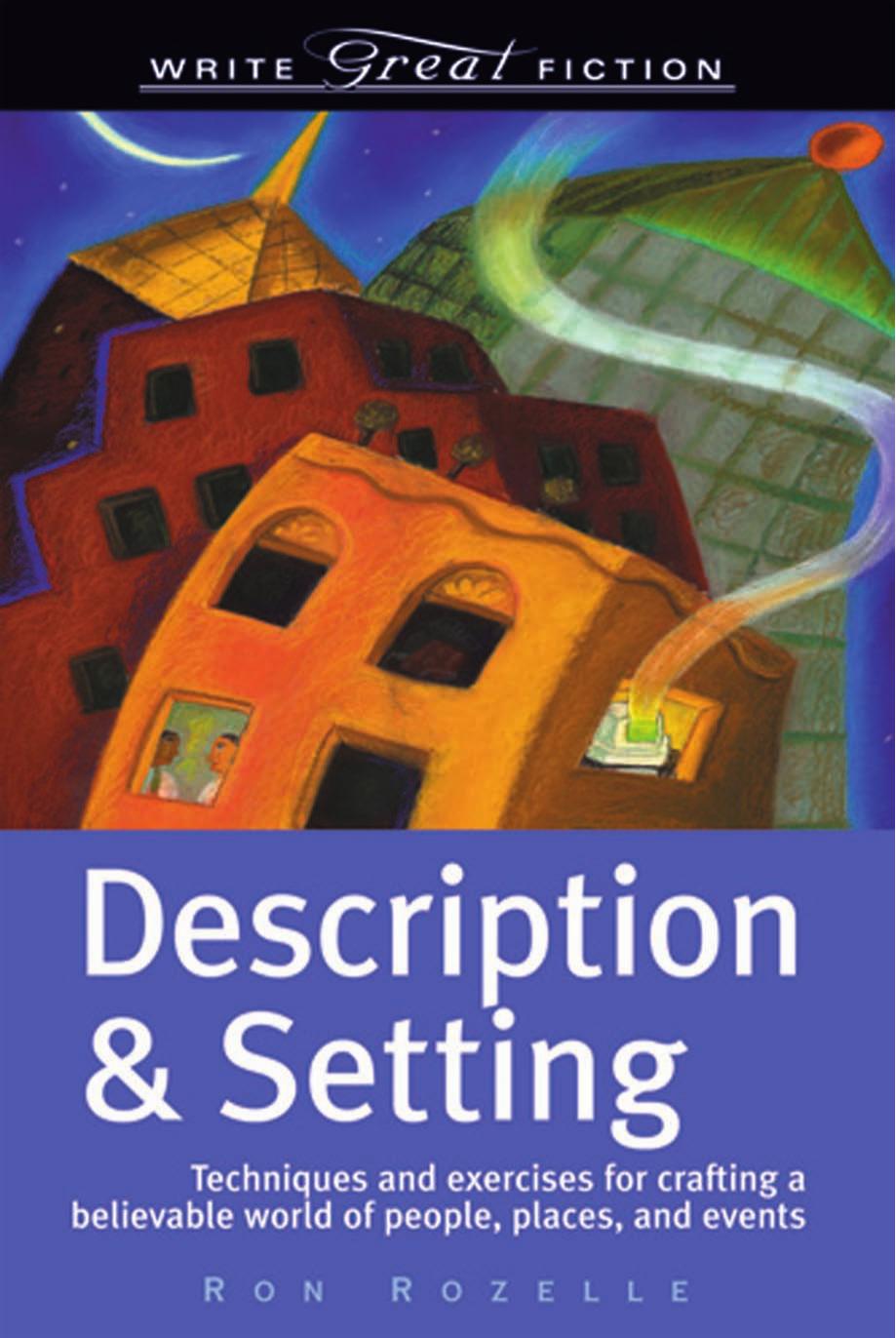Description & Setting by Rozelle Ron

Author:Rozelle, Ron. [Rozelle, Ron.]
Language: eng
Format: mobi, pdf
Published: 2008-08-29T17:14:47+00:00
*
chapter 7
*
[ t i m e a n d p l a c e ]
In chapter four I pointed out that it is essential when writing fiction to tell a
story rather than write a report. The reason is simple: Stories are more enjoy-
able than reports and easier to digest. You want proof of that? Dust off your
Old Testament and start reading, not for any spiritual enlightenment but just
for comprehension. You’ll probably like Genesis, what with Adam and Eve
misbehaving and Noah getting his odd instructions regarding a particular
boat and Abraham’s test and many other things. Then read on through Exo-
dus, with God continually asking Moses ‘‘What’s with these people? I promise
them all these neat things, give them food that falls out of the sky, and all
they do is whine.’’ That’s good stuff, best-seller material if ever I saw it.
Now take a stab at Leviticus, which is a long catalog of specific dietary and
ritualistic rules. Leviticus has undoubtedly brought legions of people intent on
reading straight through the Bible from start to finish to a screeching halt.
In Genesis and Exodus there is drama; there are murders, betrayals, and
interesting characters with various motivations in various dilemmas. In short,
there are stories. In Leviticus there is just that seemingly unending list of
decrees.
And there is one more difference—perhaps the single most important
setting
&
one—between the Old Testament’s first two books and its third. All of those
stories are grounded in specific times and places. They each have a definite
setting; Abraham looks out across the vast unknown territory that he has
been told to traverse, Noah watches the waters cover up the world and gets
description
bumped around by all those animals in the close quarters of the ark, and
120
Moses actually sees the promised land, rather than just hears about it. Readers
see it too, since they are right there with him. There’s none of that in Leviticus,
since the reader is never given any particular place to be.
Nothing so solidly anchors a work of fiction in readers’ minds as knowing
when and where something is taking place. Settings provide bases of opera-
tions for everything that happens in your story or novel, and, as importantly,
they—along with the characters that will do things in there—provide you
with a means to actually tell a story, rather than simply report information.
In this chapter, we’ll look at a few ways for you to put your readers in
the times and places where those stories can emerge.
t h e c r e d ib i l i ty o f y ou r s e tt i n g
One night my wife was watching television while I tried to read student
manuscripts. Bits and pieces of whatever she was watching began to mingle
with the words I was reading, and soon I began to realize that I was paying
as much attention to the movie as I was to what I was supposed to be doing.
The plot involved a middle-aged woman who had fallen into a romance
with her young renter, who had taken to cavorting with the woman’s teenaged
daughter. The whole mess ended tragically for the mother
Download
This site does not store any files on its server. We only index and link to content provided by other sites. Please contact the content providers to delete copyright contents if any and email us, we'll remove relevant links or contents immediately.
Asking the Right Questions: A Guide to Critical Thinking by M. Neil Browne & Stuart M. Keeley(5775)
Autoboyography by Christina Lauren(5235)
Eat That Frog! by Brian Tracy(4540)
Dialogue by Robert McKee(4403)
Sticky Fingers by Joe Hagan(4198)
Journeys Out of the Body by Robert Monroe(3624)
Annapurna by Maurice Herzog(3467)
Full Circle by Michael Palin(3449)
Schaum's Quick Guide to Writing Great Short Stories by Margaret Lucke(3380)
Elements of Style 2017 by Richard De A'Morelli(3349)
The Art of Dramatic Writing: Its Basis in the Creative Interpretation of Human Motives by Egri Lajos(3067)
Atlas Obscura by Joshua Foer(2961)
Why I Write by George Orwell(2952)
The Fight by Norman Mailer(2940)
The Diviners by Libba Bray(2937)
In Patagonia by Bruce Chatwin(2930)
The Mental Game of Writing: How to Overcome Obstacles, Stay Creative and Productive, and Free Your Mind for Success by James Scott Bell(2908)
Venice by Jan Morris(2573)
The Elements of Style by William Strunk and E. B. White(2473)
